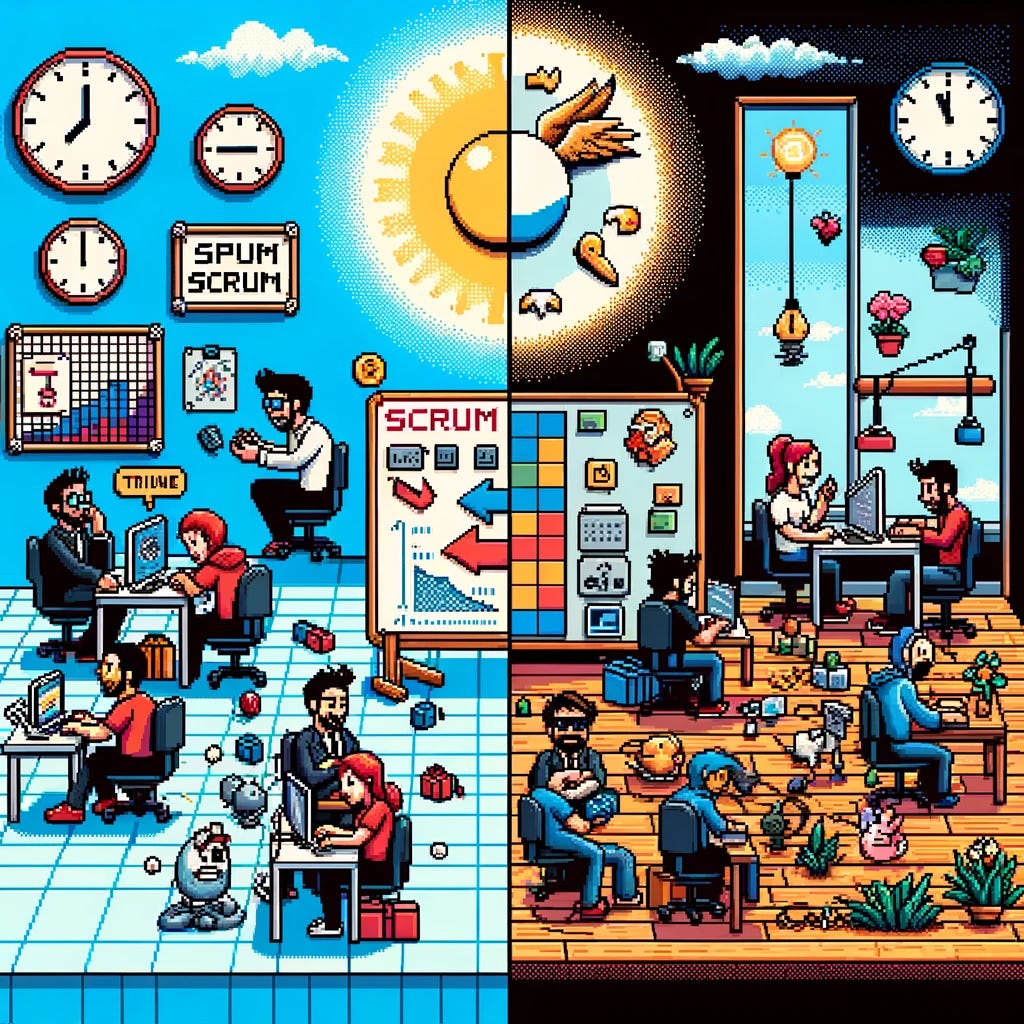In the previous parts (here, and here) of this series, we explored the limitations of Scrum in remote work environments and the productivity paradox it creates. We also looked at how ancient wisdom and human work rhythms offer valuable insights into more natural and effective work patterns. It's easy to point out what's going wrong – anyone can complain. But true progress comes from proposing solutions, not just identifying problems. So, rather than continuing to dwell on the limitations, it's time to focus on a solution. I will start defining the proposed solution with my next article, now is the time to recap what we've explained so far.
We have 2 key take aways - that are related to the game of work.
The Game of Work:
1. The Rules of the Game:
When a system, like Scrum, sets rules for reward and punishment, it inadvertently turns work into a game. People, by their nature, strive to understand these rules and play to win. This often leads to prioritizing the game over producing high-quality output. They become adept at the game, not necessarily at delivering the best work.
2. Nature of Human Efficiency:
As discussed in "Scrum is Broken: The Productivity Paradox," methodologies such as Scrum clash with intrinsic human work patterns. Humans are naturally inclined to work in pulses, with periods of high activity followed by rest, rather than maintaining a constant level of productivity.
In today's world, people tend to maximize gains with minimum effort. Timeboxing tasks, a common practice in Scrum, often results in work being stretched to fill the available time, rather than being completed efficiently and effectively.
Based on these findings and statements, we can identify criteria for our new software development methodology.
Criteria for a People-Centric, Modern Development Methodology:
Aligning with Human Nature:
The new methodology should resonate with the natural pulse of human productivity, acknowledging and leveraging the patterns of intense work and rest.
Valuing Output Over Hours:
The focus should shift from the number of hours worked to the quality and impact of the output. This transition acknowledges that value lies in what is produced, not how long it takes to produce it.
Encouraging Noble Work:
By allowing and encouraging slack time, we create space for what I term 'Noble Work' - activities that fuel creativity, innovation, and add value. This is where scientific breakthroughs and artistic expressions flourish.
Noble Work is the time spent on activities that elevate us beyond routine tasks, and enables creativity. As our tools evolve and become more efficient, they create opportunities for us to engage in this higher level of work. Our development culture should create an environment that values high-quality output without penalizing the time spent on creative and innovative endeavors.
The new development style is not just a methodology; it's a paradigm shift. It aligns with our natural rhythms, values meaningful output, and creates space for Noble Work. By embracing this approach, we can revolutionize our productivity and wellbeing, setting a new standard for software development that resonates with our human essence.
Stay tuned for the next part, where we will delve into the practical implementation of Pulse Development and explore how it can transform the landscape of software engineering.


